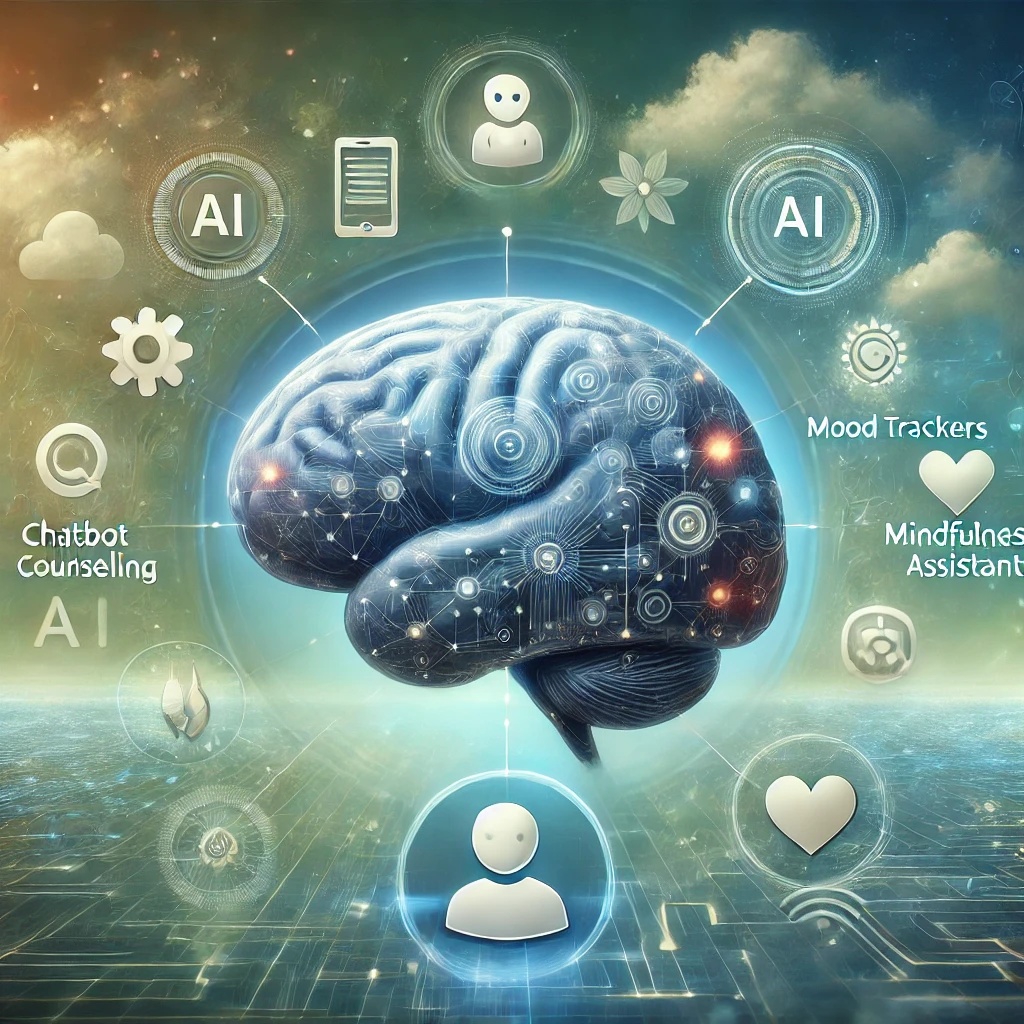In today’s fast-paced digital world, mental health has become a global priority — and Artificial Intelligence is stepping in to help. From therapy bots to mood tracking tools, AI-driven mental health apps are transforming the way people access emotional support.

But can an app truly understand your feelings? Let’s explore how AI therapy apps are evolving in 2025, the best ones available, and whether they’re really helpful.
🤖 What Are AI Therapy Apps?
AI therapy apps use natural language processing (NLP), machine learning, and large language models (like ChatGPT) to simulate therapeutic conversations. These bots can:
- Listen and respond empathetically
- Offer CBT-based exercises
- Help with anxiety, depression, stress, and loneliness
- Provide 24/7 support without human intervention
Most of these apps don’t claim to replace real therapists, but they do serve as first-line support or complementary tools for daily mental well-being.
🌟 Top AI Mental Health Apps in 2025
Here are the leading AI-powered mental health apps making headlines this year:
1. Woebot
- 🧠 Based on CBT (Cognitive Behavioral Therapy)
- 💬 Offers friendly chatbot-style conversations
- ✅ Clinically backed and used by millions
Why It Stands Out: Woebot feels like texting a helpful friend. It’s quick to respond, asks thoughtful questions, and remembers your patterns over time.
2. Wysa
- 🌍 Popular globally, especially in India and UK
- 👩⚕️ Offers both AI coach and human therapists
- 🧘♀️ Guided meditations, mood journaling, and CBT techniques
Why It Works: The combination of AI plus optional human coach upgrades gives users flexibility and trust.
3. Youper
- 🤖 Uses AI for emotional check-ins and mindfulness
- 📊 Provides insights into mood trends and emotional triggers
- 💡 Designed by psychiatrists
Best For: Those looking for self-awareness + AI-guided therapy without constant chatting.
4. Replika AI (with Therapy Mode)
- Originally built for companionship, now includes mental health support
- 🧠 Customizable AI avatar that “knows” you over time
- 🎭 Can feel emotionally intelligent, especially for lonely users
Note: It’s more casual and emotional than clinically structured — best for light support.
5. Twill (formerly Happify Health)
- 🔍 Offers structured mental health journeys based on goals (e.g., anxiety, sleep, mood)
- 🌐 Includes AI interactions + digital therapeutics
Great for: Users who want science-backed guidance with optional human care add-ons.
🧠 Can AI Really Help With Mental Health?
Surprisingly, yes — to a point. AI can’t fully empathize like a human, but studies show that AI chatbots can reduce anxiety, boost mood, and encourage reflection. They are:
- Private & stigma-free
- Always available (24/7)
- Cost-effective (many are free)
However, they shouldn’t be used for crisis situations, suicidal thoughts, or complex psychiatric conditions. In such cases, professional help is irreplaceable.
🔐 Privacy Concerns You Should Know
While most apps use encryption, always check:
- Who owns your chat data?
- Are conversations stored or used to train AI?
- Is the app HIPAA or GDPR compliant?
Trustworthy apps clearly state their data usage policy and give users control over privacy.
✅ Final Thoughts: Should You Try an AI Therapy App?
If you’re feeling stressed, anxious, or need someone to “talk” to — an AI therapy app is a great starting point. They’re not a replacement for a licensed therapist but can:
- Help you process emotions
- Track your mental health over time
- Offer techniques like mindfulness and CBT
In 2025, mental health is just a tap away — and AI is making sure no one feels alone, even in silence.
💥 Explore more cutting-edge AI Tools:
- 🎥 Grok AI by Elon Musk – Full Tamil Breakdown
- 🧠 Elise AI – Smart Property Assistant
- 🛍️ AdCreative AI – Supercharge Your Ad Performance
📢Don’t forget to like, share, and subscribe to G Cloud Techphile on YouTube for more tutorials!
📢 Click here to join the channel and be part of a tech-driven community. Don’t miss out on exciting updates!
